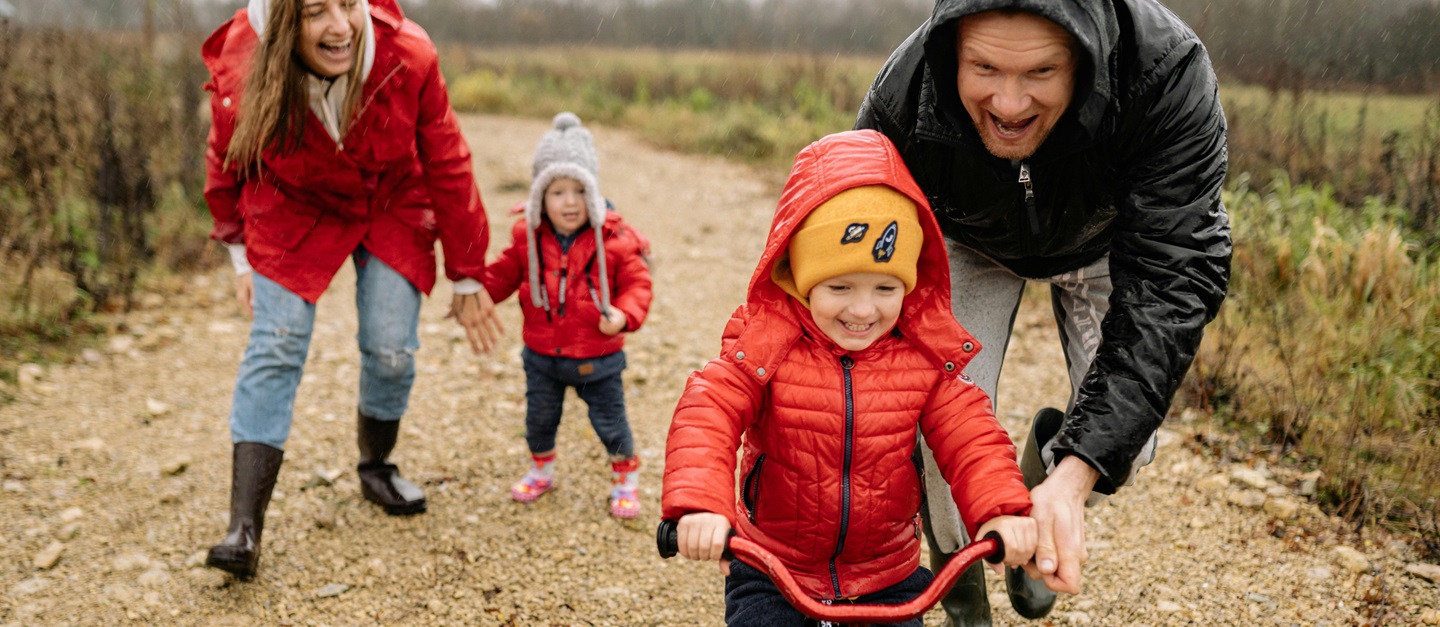How can I support a young child living with juvenile idiopathic arthritis?
11 July 2024
It’s common for children to get the odd bump or scrape in the playground. But what if your child has a bump on their joint that doesn’t heal and doesn’t seem their usual self?
If you notice any unusual, ongoing symptoms like joint pain and swelling, it’s always worth taking your child to see a doctor.
This is because it could be a sign of a type of childhood arthritis called Juvenile Idiopathic Arthritis (JIA).
Receiving a JIA diagnosis can be a huge shock for any family. But it can also be a relief to finally get some answers and know how to treat the condition.
Here we explore how you can support a toddler who has been diagnosed.
Learn More about our Young People and Families Service
What is JIA?
JIA is when a child has inflammation (swelling) in one or more of their joints before their 16th birthday.
It is estimated that 10,000 children under 16 years old have been diagnosed with JIA.
So, if your child is diagnosed, remember you’re not alone.
What are the symptoms of JIA?
By noticing the symptoms of JIA, you can help your child get the treatment and support they need as soon as possible.

JIA can cause symptoms such as:
- Painful, swollen or stiff joints.
- Joints that are warm to touch.
- Increased tiredness.
- A fever that keeps returning.
- A limp but no injury.
- Slowing down (or asking to be carried more).
- General irritability.
- Not hitting development milestones.
- Struggling to move in a way they were okay with before.
How can I help a child with JIA at preschool?
With the right treatment and support, your child should feel like they’re able to do the activities they enjoy – whether that’s colouring in, going to the park or soft play.
For some children, once they’ve started treatment, it might even be difficult to tell that they have JIA. This is because their treatment aims to reduce disease activity as low as possible.
Despite this, it’s still important to remember that young people living with JIA may need extra support, for example if they have a flare-up.
Here are a few tips to help you support them:
- If you have a young child who has JIA, it might take them a little longer to reach milestones like walking. With that in mind, try to be positive and support their emotional wellbeing.
- Mindfulness activities such as breathing exercises can help reduce anxiety and stress. Playing in a group can help children feel included, give them the chance to connect with others, and celebrate their differences.
- Awards and stickers are a great joy for many children. They can also be a great way to reward them when they reach a goal.
- Story time, singing, cuddles with a soft toy, or saying positive affirmations can be a great mood booster if your child is feeling low.
- Pre-school children who have JIA may be slower to potty train. So, nurseries should try to understand this.
- Stiffness and joint pain are common symptoms of JIA. To help ease this, we should allow children to move around and avoid sitting cross-legged or in one position for long periods.
- Gripping colouring pencils, paint brushes, or chalk may be difficult if your child has arthritis in their hands. To support them, you could choose art supplies that are thick, chunky and easier to grip. You might also want to encourage them to pace themselves and craft little and often.
- If your child has inflammation (swelling) in their feet, you could allow them to take off their shoes if needed. They could also wear an alternative shoe, like a slipper sock that has grips.
- Some children want to protect their joints and may find outdoor play intimidating. If this sounds like your little one, you could adapt playtime to make it more fun and inclusive for them. For example, you could take regular breaks or use softer balls.
- Sometimes younger children might seem withdrawn, upset, or unsettled if they can’t voice what’s bothering them. If this is the case, you could encourage them to sign, point to a joint or signal that they feel unwell if they don’t or are unable to talk.
- It's natural to want to protect your child. But children with JIA are often resilient and can quickly learn to adapt. They might also be able to show you what would best support them. So, listen to their opinions and try to understand what they’re experiencing.
- Children with JIA may experience fatigue (tiredness) from doing everyday tasks that other children may complete easily. This can leave them feeling frustrated, upset or even angry. Help them understand that it’s okay to feel like this and that everyone’s there to support them.
- A simple story book that explains a bit more about JIA can help a young person and their friends or siblings understand their condition.
- Meeting other children with JIA and their families can be beneficial, for example through our Online Community or events run by our Young People and Families Service.

Parenting a child with JIA: Tom’s advice
Tom’s daughter, Lara, was diagnosed with JIA when she was just two years old.
Then, a year later, she was diagnosed with uveitis. This is a related condition that causes inflammation in your eye. If left untreated, it can cause sight loss.
Now Lara is eight years old and in remission after taking a medicine called adalimumab, which was discovered thanks in part to our research.
Tom says: "It’s been a bit of a rollercoaster journey. There have been ups and downs but we're in a good place now. The future is looking more settled and manageable.”
But what advice would he give to other parents whose child has been diagnosed with JIA?
“If I was to offer advice to other parents, I would say that it’s essential to get organised,” Tom says. “It’s worth chasing and checking if appointments are booked or medicines are going to be delivered. We’ve got spreadsheets and calendar reminders.
"It’s like a second job sometimes. But it’s gotten much better as we’ve gotten more used to it. Now she's in medicated remission, there are fewer appointments, so it’s so much more manageable too.
"It's also important to get as much as you can from family and friends because it's tiring and stressful.
"You need to look after yourself as well. If you have a partner, work as a team and try to take some respite when you can.”
"There are some great Facebook groups out there where you can ask questions and get answers. Remember there's always someone who's gone through the same journey as you who can help.
"There are also Young People and Family Services. We’ve always wanted to go to one of the residentials with Lara and meet other children with JIA. That’s something I’d like to do in the future.”
We’re here for you
If you or a family member under the age of 25 has arthritis, we run a Young People and Families Service that provides information and support and puts on a range of events across the country.
Find out what is going on in your local area
If you need advice or support, you can also:
- Call our free helpline on 0800 5200 520
- Chat to our Arthritis Virtual Assistant
- Join our online community
- Stay in touch and follow us on X (Twitter), Facebook and Instagram.